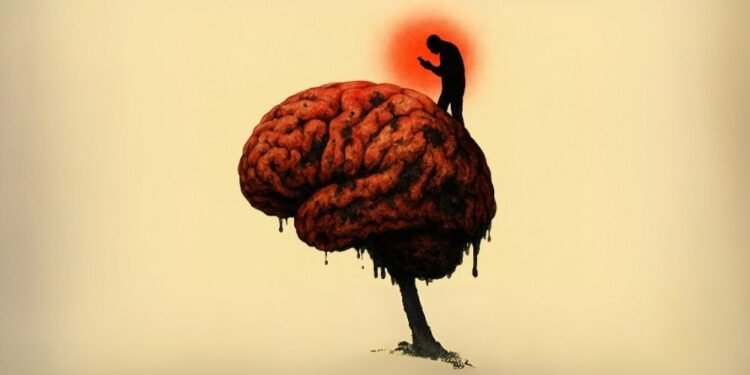We used to joke about “brain rot” like it was just another internet punchline. But science is catching up with what many of us already feel: something’s off. From attention spans shorter than TikToks to the anxiety spiral that comes from doomscrolling at 2AM, the data is stacking up—and it’s not pretty.
Turns out, “brain rot” isn’t just slang. It’s a symptom of overstimulation, cognitive fatigue, and yes, measurable changes in the brain.
Your Brain on Scroll: Structural and Functional Changes
Multiple MRI studies, including a 2022 Korean scan and systematic reviews across journals like PMC and MDPI, have found reduced gray and white matter in the brains of heavy smartphone users.
These aren’t minor shifts—they show up in key areas like the caudate nucleus and cerebellum, which affect focus, motor control, and even decision-making.
One 2024 study linked this to disrupted connectivity in the salience network—aka the part of your brain that decides what’s important. Constant exposure to digital dopamine (likes, messages, video loops) literally rewires how we process attention and reward.
And it’s not just structural. Functional shifts in these networks are now being linked to anxiety, poor sleep, and depressive symptoms—especially in teens.
It’s Not ADHD—But It’s Uncomfortably Close
Clinicians are calling it a “subclinical attention disorder.” Think ADHD-lite. Not diagnosable by traditional standards, but the same cocktail of symptoms: impulsivity, inattention, low motivation, and executive dysfunction.
Studies cited by SAGE Journals, Frontiers, and American Academy of Neurology confirm that excessive screen time mimics the neural patterns seen in attention-deficit disorders.
What’s worse? Our multi-tasking habits are making it worse. Harvard-backed research shows that frequent digital media users perform about 26% worse on memory tasks. The average person now switches focus every 45 seconds.
The Good News: Your Brain Isn’t Broken—It’s Just Overstimulated
Here’s the part people miss: the brain is plastic. Meaning, with the right habits, it can recover. Regular aerobic exercise can literally grow your hippocampus by 2% a year. Ten minutes of daily focused activity—deep reading, meditation, real conversation—can re-strengthen the prefrontal cortex and rebuild attention span.
This isn’t about quitting your phone. It’s about using your brain on purpose.
Brain rot isn’t a meme. It’s a warning.
The science is loud and clear: too much screen time messes with your brain. But it’s not permanent.
The same neuroplasticity that got us here can get us out—with intention, limits, and a reminder that real focus is still worth fighting for.












